Helping refugees – a history of neighbourly goodwill and doing our bit
30 October 2025
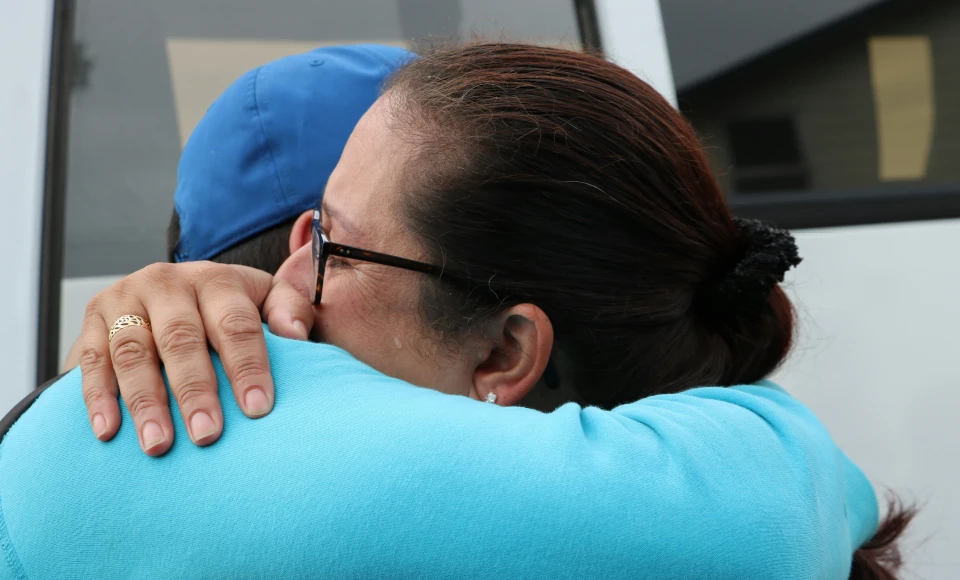
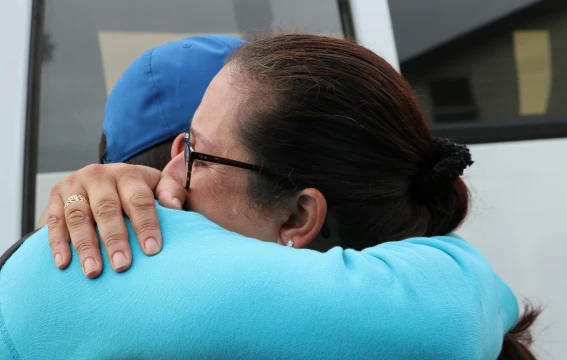
Our members, volunteers, employees, and supporters have been the heart of our mission since 1915, selflessly dedicating their time and skills to make a difference in the lives of others.
An area of our work where we’ve seen this neighbourly good will has been with former refugees, where over the decades our volunteers have helped people fleeing violence and persecution to rebuild their lives in New Zealand.
Our beginnings
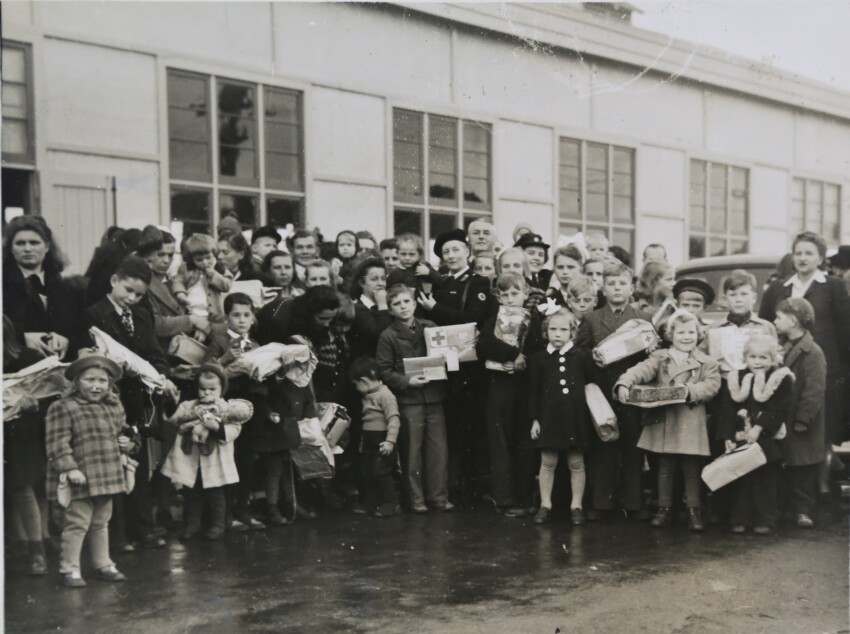
Polish refugee children in 1944.
In 1944 we helped welcome some of New Zealand’s first refugees – a group 733 Polish children displaced during the war, accompanied by 105 adult caregivers. It all began with Countess Maria Wodzicka, wife of the Polish consul and Polish Red Cross delegate in New Zealand. In 1943 a troopship berthed in Wellington with a group of children from Poland on board. Countess Wodzicka visited the children with gifts and was deeply moved by how affected and traumatised the children were.
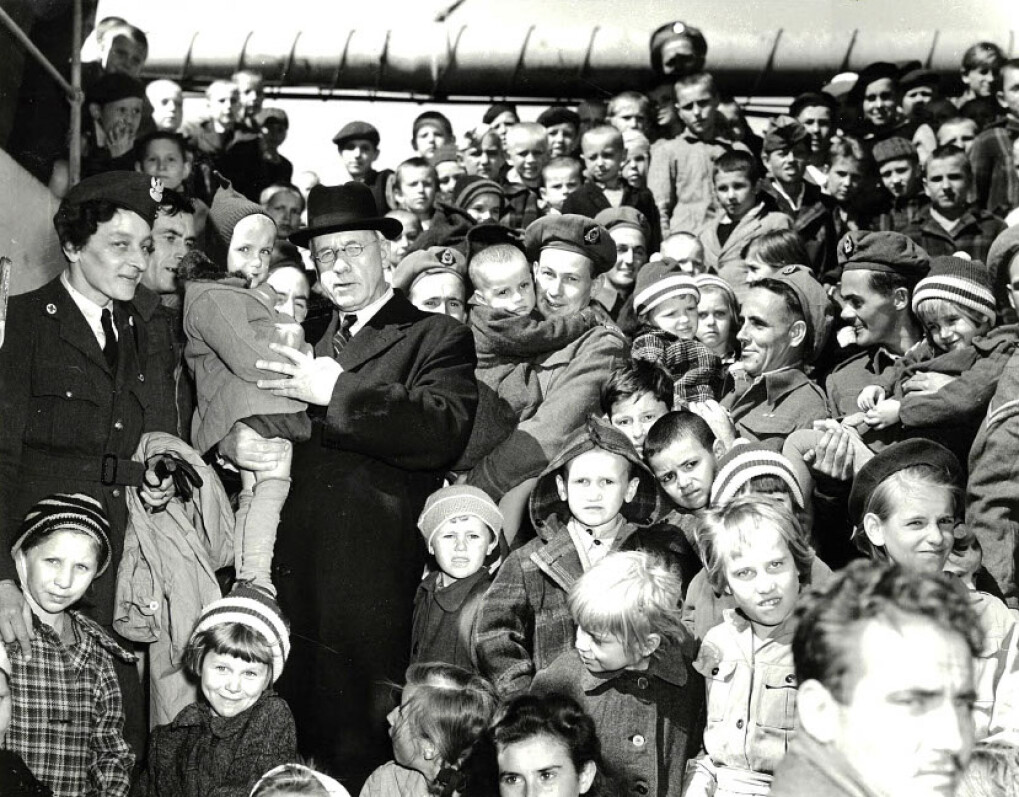
Countess Wodzicka and Prime Minister Peter Fraser with Polish refugee children when they arrived in Wellington, November 1944.
Countess Wodzicka visited Janet Fraser, wife of the Prime Minister Peter Fraser, and together they approached the Prime Minister to persuade the Government to accept Polish children who’d lost their parents and homes during the war. The children arrived in late October 1944 as guests of the New Zealand people.
Our volunteers met the ship carrying the children when it arrived in Wellington and helped to set up the children’s camp at Pahiatua. They made up hundreds of beds and made sure there were flowers on the tallboys in each dormitory. In the following months, our volunteers raised money for clothing and other items for the children.
Countess Wodzicka was a steadfast champion of the children, often visiting Pahiatua and acting as a mediator between the camp and the agencies involved with their care. For Red Cross volunteers and others, working with refugee children — now known as the Polish children of Pahiatua — personalised the experience of displaced people. It laid the groundwork for our later work with refugees which is now one of our core services.
Past Pahiatua
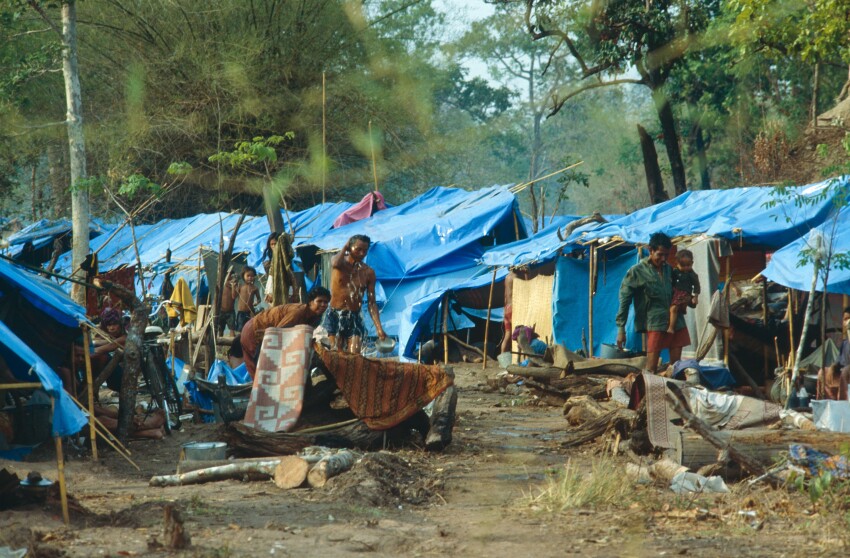
Red Hill refugee camp on the Thai/Cambodian border, 1983.
In the years between World Wars, as well as after 1945, refugees were recipients of humanitarian relief in the form of donations, clothing, and other goods sent overseas in the name of New Zealand Red Cross. Beginning in the 1950s, the Junior Red Cross began to ‘adopt’ refugees, either in groups or as individuals to be supported. During World Refugee Year in 1961, Red Cross centres and sub-centres helped 365 refugees through ‘adoption’.
As the Government developed more systematic policies to bring groups of displaced people into New Zealand, Red Cross members were drawn into the settlement process. Red Cross volunteers worked with groups like the Inter-church Commission on Immigration, as well as new arrivals at the Mangere orientation centre in Auckland. Individual branches and members often helped migrants settle in local communities, working with church groups in the beginning.
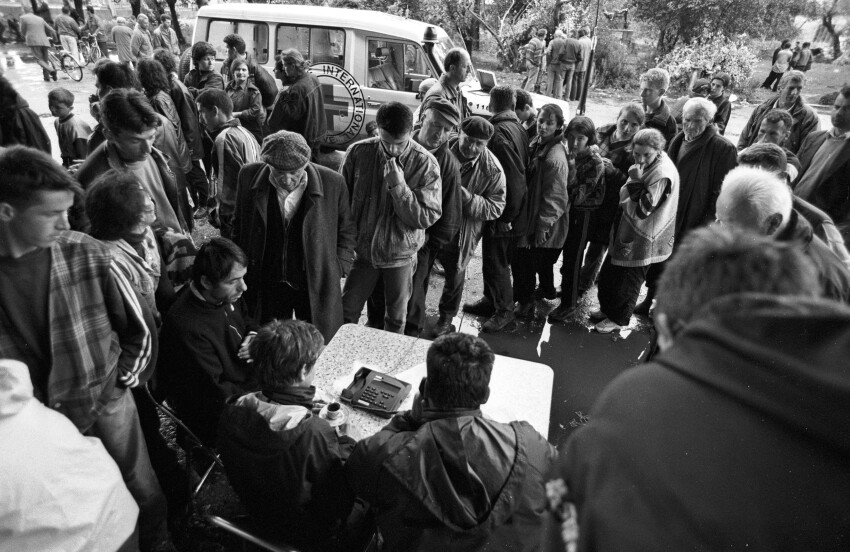
Kosovian refugees waiting to use an ICRC satellite phone in Albania, 1999.
At a national level, we were well positioned through our international tracing service to reunite families separated by war or disaster, regularly sending information to the Central Tracing Agency in Geneva. By the late 1980s, the Inter-church Commission became Refugee Services Aotearoa New Zealand. This brought with it a new governance structure to manage a growing organisation and to incorporate a broader cross-section of people.
At the same time, responses to refugees also became more complex. Their mental health needs became part of the settlement process along with demands for a greater refugee voice, cross-cultural expertise, social worker support, and volunteer training. The increasingly professional approach — which was much needed in the refugee settlement space — needed specialist support. In 2012, we absorbed Refugee Services and today we continue to hold most of the contracts for settlement in New Zealand.
Our work today
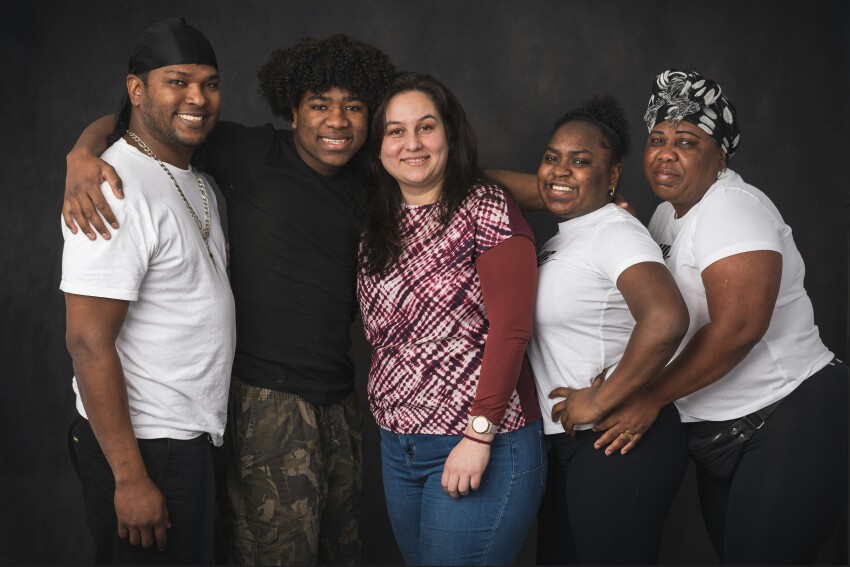
Victor Alvarez, Nicarin Alvarez, settlement case worker Natalia Vasquez, Nike Alvarez, and Olga Alvarez in Blenheim, 2022.
Today, our work supporting people from refugee backgrounds encompasses wrap-around support which includes social, mental, and financial wellbeing. Many people who work in our settlement programmes have lived experience as former refugees.
The way that we talk about people from refugee backgrounds has changed. We know that not everyone who’s been a refugee chooses to identify as a refugee for many reasons. Some people arrived as refugees when they were children, so don’t have the same refugee experience as others, including their own family. We also know that asylum seekers and people who arrived under the quota system have very different experiences. Someone from a refugee background may identify as a New Zealander, rather than an identity from their country of birth.
At Red Cross, we use the terms ‘former refugee’ and ‘refugee background’. This is because once people arrive in New Zealand under the quota system they become permanent residents and are no longer refugees. Aotearoa is their permanent home.
We’re one of six organisations providing community settlement support to former refugees who’ve arrived under the annual government quota system. We help to settle people in:
- Palmerston North
- Levin
- Masterton
- Wellington
- Nelson
- Blenheim
- Dunedin, and
- Invercargill.
Other organisations who provide settlement services are:
- Kāhui Tū Kaha in Auckland
- HMS Trust in Hamilton
- Purapura Whetu Trust in Christchurch
- Presbyterian Support South Canterbury in Timaru, and
- Safer Mid Canterbury Charitable Trust in Ashburton.
When former refugees arrive at their new community, we meet them to take them to their new home. With the help of our refugee support volunteers, we make sure homes are already set up so people can move in straight away.
For up to two years, our team of professional social workers, cross-cultural workers, settlement leads, and case workers help people settle in their new communities. We help more than 1,000 people get into job training and find work each year. We also have a small specialist team in Wellington who provide trauma counselling for former refugees living in the wider region.
Former refugees have a dedicated worker and a small team of trained volunteers to support them. For the first three to six months our volunteers help with things like grocery shopping, showing people around their new communities, and getting to medical appointments. Almost 700 volunteers help more than 800 people settle in Aotearoa each year.
In times of crisis and uncertainty, we choose to stand on the side of humanity, offering hope, relief, and solidarity to people in need. Neutral, independent, and impartial humanitarian action is crucial to ensuring help reaches people in need, regardless of where they are.
This story was made possible thanks to the work of New Zealand historians:
- ‘Across the Street, Across the World: A History of the Red Cross in New Zealand 1915 – 2015’ by Margaret Tennant.
- ‘Maria Wodzicka’ TeAra.govt.nz – The Encyclopedia of New Zealand, by Theresa Sawicka.
- ‘Polish children of Pahiatua’ – Wellington City Council.
More information
- If you're a former refugee and looking for work, we may be able to help.
Finding a job - Giving a former refugee an employment opportunity, our teams work with refugee-background job seekers who have a vast range of skills, qualifications, and employment histories.
Employing refugees - If you want to get involved in our work, join us! We have volunteer roles to suit everyone.
Find a volunteer role - Donate to support our work, including responding to emergencies, helping former refugees resettle, and delivering meals to people who can’t cook for themselves.
Donate to where the need is greatest
